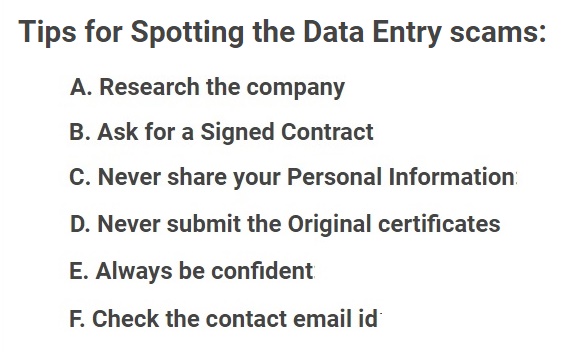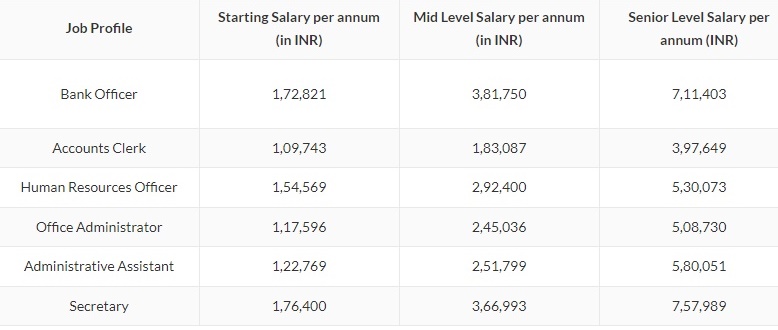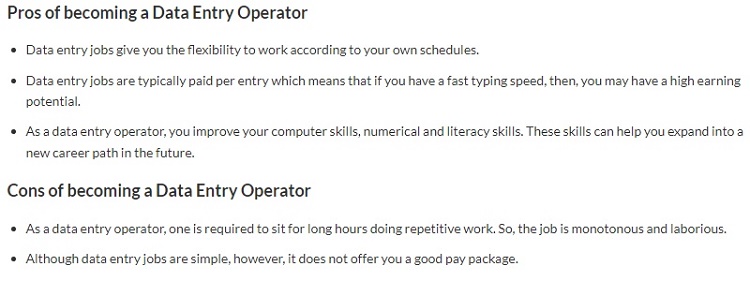Data Entry Job Scam
What is data entry job scams?
During this difficult situation of the COVID-19 pandemic, people have started searching for online data entry jobs or work-from-home opportunities in order to support their families or themselves. However, finding a legitimate job on online portals is a big challenge, especially for youngsters. Online job fraudsters often spend a lot of time disguising their scams in the form of work-from-home or data entry jobs.

However, there are a few job offers that look exactly like genuine company offers. Even a skilled thief leaves a mark behind; just like that, these fraudsters leave some loopholes in their portals. You can protect yourself from these scams by being aware of their fraudulent offers and tricks when you are seeking online jobs. On this page, we will discuss tactics of data entry job scams and steps to avoid them.
Data entry job scams involve deceptive practices where scammers pose as employers offering legitimate data entry positions to exploit individuals seeking remote or flexible work opportunities. Typically, these scams entice victims with promises of high pay for simple data entry tasks that can be done from home. Common red flags include requests for upfront fees—supposedly for training materials or software—and unrealistic earnings claims. Fraudsters may use fake job listings or websites to collect personal information or financial details from unsuspecting applicants. To avoid falling victim to data entry job scams, individuals should thoroughly research potential employers, avoid upfront payments, be skeptical of unrealistically high earnings, and carefully scrutinize job listings for legitimacy. Vigilance and a cautious approach are essential to protect against these deceptive schemes in the realm of online job opportunities.
Tactics of data entry job scams
Minimum Qualification and Minimum Experience
Data entry job is a profession that involves storing and recording company-related data and requires minimal skills, such as typing or basic computer operation experience. Nowadays, many job seekers are looking for work-from-home job opportunities.

Job seekers may come across several data entry job postings during their search that require only minimal qualifications and experience. This makes it easy for fraudsters to disguise their scams as remote data entry job listings. These fraudsters generally use various tactics to attract job applicants.
Flexible Timing and High Salary
Fraudsters make high salary job offer to attract the applicant and gather personal and financial information about the applicant. A tactic commonly used by fraudsters in their job postersto job seekers. They use these tactics to request your personal and financial information such as your contact number, social security number, license number, and bank account information.

Fraudsters commonly offer money-back guarantees to prospective employees in order to gather their personal data and banking information. Another trick they use to collect information is by sending fake checks to applicants that appear real. Unfortunately, the checks bounce, and people end up losing their money. In such cases, the fraudsters make the applicants responsible for the lost amount.
Administration Fees for Security Purposes
At any point during the hiring or onboarding process, if the hiring person, manager, or employee requests an application fee, training fee, administration fee, software installation fee, registration fee, or documentation fee, it is a scam. Job fraudsters commonly use wire transfers, bank transfers, direct deposits, and fake checks to steal money. Legitimate companies never ask employees to pay any fees or cover expenses.

Caveat Emptor
Research about the Company and the Job
Whenever you have doubts about a particular company, take the time to communicate with the hiring person or conduct a web search. It's wise to perform two to three separate checks on the company and the job description. A legitimate job description should include a detailed, bulleted list of the responsibilities the applicant is expected to undertake.

If a job description contains more information resembling a get-rich-quick scheme, then it is most likely a scam. A legitimate company will include its legal name and valid contact information. If the email address provided by the fraudster uses a generic domain (such as Gmail or Yahoo) instead of a company domain, it's a strong sign that the data entry job is a scam. Additionally, the presence of grammatical and spelling errors in the job description is another red flag indicating a potential scam.
Avoid Quick Rich Ads
Some advertisements on web portals feature individuals claiming to make absurd amounts of money by working from home. While it's true that some people do earn a good income working remotely, not all such opportunities are genuine. Some jobs may appear to be decent, and certain companies may seem completely legitimate—but they could be cleverly disguised scams.

Fraudsters often lure you in with a long list of attractive promises. They may offer high-paying packages just to trick you into revealing your personal information. Don’t be swayed by such convincing words or tempting job offers. Once you identify a fraudulent page or person, distance yourself immediately and avoid responding to their messages or calls.
Don't Disclose Your Personal Information
Even well-known companies can sometimes be involved in scam-like activities, so don’t place blind trust in any organization. Remember, all scammers are ultimately after your sensitive information, especially your credit card details. If you accept the offer or continue communicating, the scammer may manipulate you emotionally and attempt to steal your data. Always conduct thorough research and work only with trusted and verified employers.

Researching the company’s information, including contact details and address, before applying for a data entry job can help you determine whether the offer is legitimate. You should also explore the company’s official website and check other reliable platforms for such information.
If you are unable to find a valid contact number, physical address, details about current employees, or a proper web address, it is most likely a scam. If you manage to connect with the HR department, you should be able to easily obtain accurate information about the company. If not, proceed with caution before continuing any further communication.
No Interview, No Job
It is mandatory for HR to interview candidates either remotely or in person. However, if an interview is conducted solely through email, online chat, or text, it is most likely a scam. Interviews are a formal and essential part of the hiring process and are never conducted casually. A legitimate company will always schedule the interview properly and follow a structured process.

Remote interviews should only be conducted via phone or video conferencing. Video interviews typically require you to turn on your camera, and the employer will also appear on screen and engage professionally. This face-to-face interaction allows you to assess the employer's demeanor and gives you the opportunity to verify the information you’ve researched about the company.
Data entry job scams are deceptive practices that prey on individuals seeking employment in the data entry field. These scams often involve fraudulent job postings or advertisements that promise high-paying work-from-home positions requiring minimal effort. Common characteristics of data entry job scams include unrealistic income promises, requests for upfront fees (allegedly for training materials, software, or job listings), and a lack of transparent information about the company or employer.
Scammers may apply pressure tactics, urging applicants to act quickly or make immediate payments to secure the job. Job descriptions are often vague or lack specific details about the duties and responsibilities.
In some cases, these scams may also include phishing attempts, where scammers request sensitive personal information under the pretense of processing a job application.
To avoid becoming a victim of data entry job scams, individuals should remain cautious, thoroughly research the legitimacy of job postings, be wary of any requests for upfront payments, and closely examine the job details. Legitimate employers typically do not charge applicants for training materials and clearly outline the nature of the work and company background.






